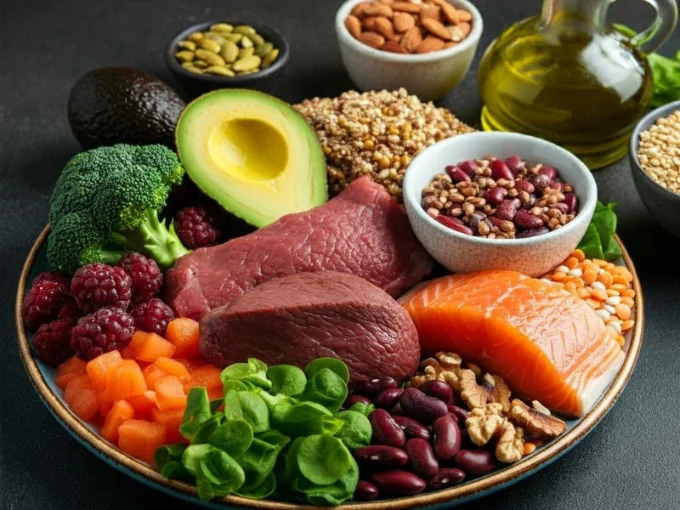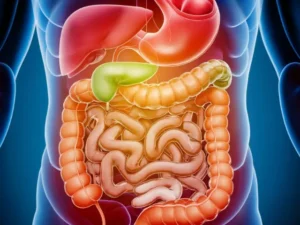Ever feel like you’re hitting a wall during your workouts, no matter how hard you train?
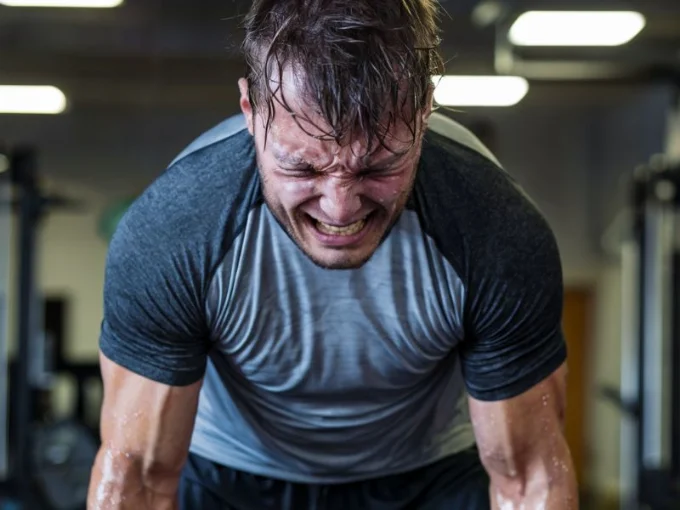
Or maybe you’re constantly battling fatigue and soreness, hindering your progress towards those fitness goals?
The secret to unlocking your peak performance and achieving your athletic dreams might be simpler than you think. It all starts with understanding the power of macronutrients.
The Fuel That Drives Your Athletic Engine
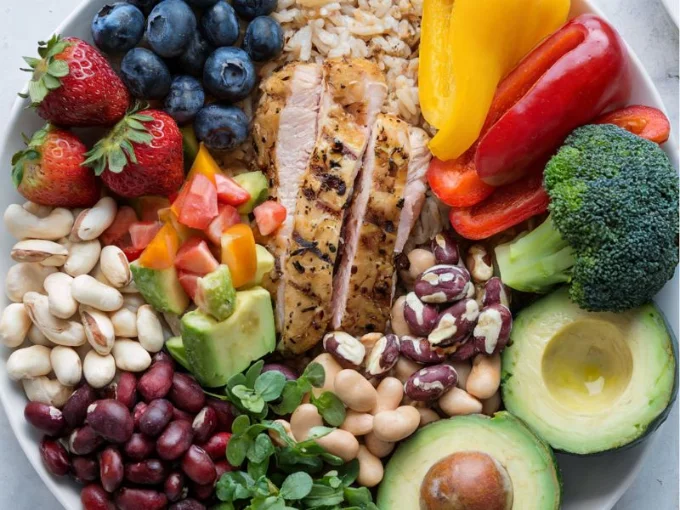
Macronutrients – carbohydrates, protein, and fats – are the essential building blocks that fuel your body’s every move, from powering explosive sprints to repairing muscle tissue after intense training sessions. They’re not just about counting calories; they’re about providing the right kind of fuel at the right time to optimize your performance, recovery, and overall well-being.
Unlocking the Power of Macronutrients
In this comprehensive guide, we’ll delve into the science of sports nutrition and uncover the secrets of macronutrient balance for athletes. You’ll discover:
- The dynamic roles of carbs, protein, and fats in fueling your athletic endeavors.
- How to tailor your macronutrient intake to your specific sport, training intensity, and goals.
- Strategic nutrition tips for pre-workout fueling, during-workout sustenance, and post-workout recovery.
- Additional considerations for athletes, including hydration, micronutrients, and the potential role of supplements.
From the Gym to the Podium: Fuel Your Journey to Success

Whether you’re a seasoned pro or just starting your fitness journey, understanding the power of macronutrients is crucial for achieving peak performance, maximizing recovery, and preventing injuries. It’s time to ditch the guesswork and fuel your body with the precision it deserves.
Ready to Unleash Your Full Athletic Potential?
Join us as we unravel the science of sports nutrition and empower you to make informed choices about your diet. It’s time to take your fitness to new heights and achieve the results you’ve been striving for!
Understanding Macronutrients: The Fuel That Powers Your Athletic Engine

Think of macronutrients as the high-octane fuel that propels your athletic performance. Just as a car needs gasoline to run, your body relies on carbohydrates, protein, and fats to generate energy, build and repair muscle tissue, and support overall health and well-being. Let’s dive deeper into the roles of each macronutrient and discover how they work synergistically to fuel your athletic endeavors.
Carbohydrates: Your Body’s Primary Energy Source

Carbohydrates are the superstars of energy production, especially during high-intensity activities like sprinting, weightlifting, or team sports. When you consume carbohydrates, your body breaks them down into glucose, a simple sugar that your cells use for fuel.
Glucose is then either used immediately for energy or stored in your muscles and liver as glycogen. Glycogen acts as a reserve tank, providing readily available energy when your body needs it most. Without sufficient carbohydrate intake, your glycogen stores become depleted, leading to fatigue, decreased performance, and the dreaded “hitting the wall” sensation.
Not all carbs are created equal. Complex carbohydrates, found in whole grains, vegetables, and legumes, are digested more slowly and provide sustained energy release. Simple carbohydrates, like those found in sugary drinks and processed foods, provide a quick burst of energy but can lead to blood sugar spikes and crashes. For optimal athletic performance, focus on incorporating complex carbohydrates into your diet.
Protein: The Building Blocks of Muscle

If carbohydrates are the fuel, then protein is the construction material. Protein is essential for building and repairing muscle tissue, making it a crucial macronutrient for athletes of all disciplines.
When you engage in intense exercise, your muscles experience microscopic tears. Protein provides the amino acids necessary to repair these tears and rebuild muscle fibers, leading to increased strength and muscle mass.
Adequate protein intake is also important for recovery after workouts, reducing muscle soreness, and promoting adaptation to training. Aim to consume protein throughout the day, especially after exercise, to support optimal muscle recovery and growth.
Fats: The Endurance Enhancer
While carbohydrates are the primary fuel source for short, intense bursts of activity, fats play a crucial role in providing sustained energy for endurance activities like long-distance running, cycling, or swimming.
Fats are also essential for other bodily functions that impact athletic performance, including:
- Hormone Production: Fats are necessary for the production of hormones, including testosterone, which plays a role in muscle growth and strength.
- Nutrient Absorption: Certain vitamins, like vitamins A, D, E, and K, are fat-soluble, meaning they require dietary fat to be absorbed and utilized by the body.
- Joint Health: Healthy fats can help lubricate joints and reduce inflammation, which is crucial for athletes who put stress on their bodies.
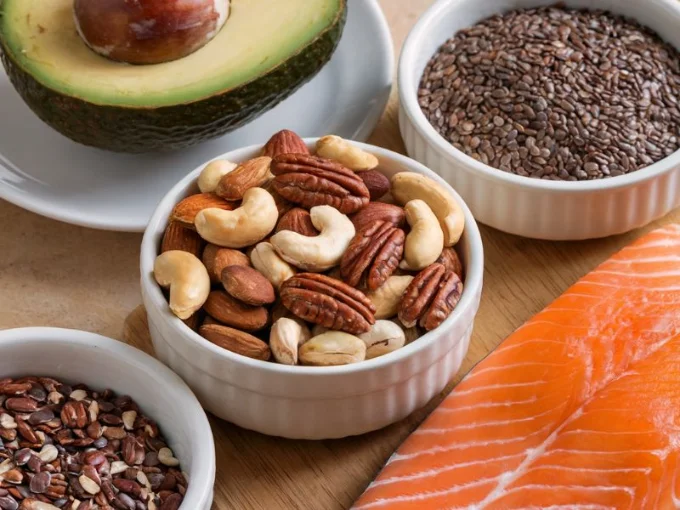
Focus on incorporating healthy fats, like those found in avocados, nuts, seeds, and fatty fish, into your diet to support your athletic performance and overall health.
By understanding the roles of carbohydrates, protein, and fats, you can create a balanced and personalized nutrition plan that fuels your athletic engine, supports your training goals, and helps you reach new heights in your fitness journey.
Macronutrient Ratios for Athletes: Finding Your Ideal Balance for Peak Performance
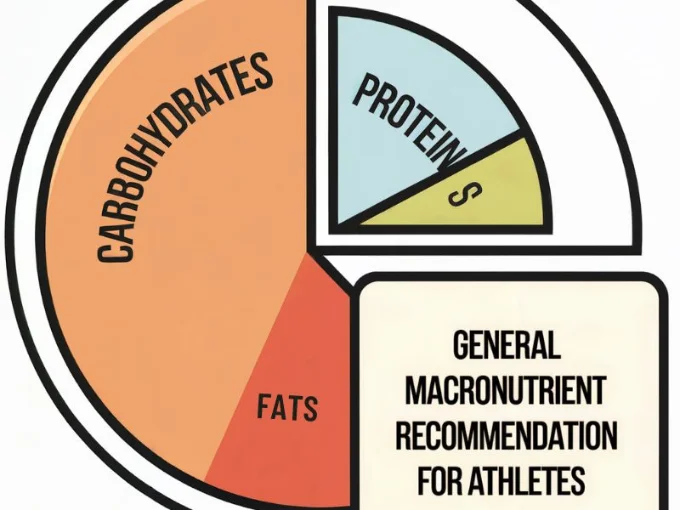
Now that we’ve explored the individual roles of each macronutrient, let’s talk about finding the right balance. Think of it like a recipe for success – the perfect combination of ingredients will fuel your athletic endeavors, support recovery, and help you reach your peak performance. But just like every athlete is unique, so are their macronutrient needs.
General Recommendations: A Starting Point for Fueling Your Body
While there’s no one-size-fits-all macronutrient ratio for every athlete, there are general recommendations that can serve as a helpful starting point:
- Carbohydrates: 45-65% of total daily calories
- Protein: 10-35% of total daily calories
- Fats: 20-35% of total daily calories
These ranges provide a framework for ensuring you’re getting enough of each macronutrient to support your active lifestyle. However, it’s important to personalize these ratios based on your specific sport, training intensity, and goals.
Endurance Athletes: Carb-Loading for the Long Haul
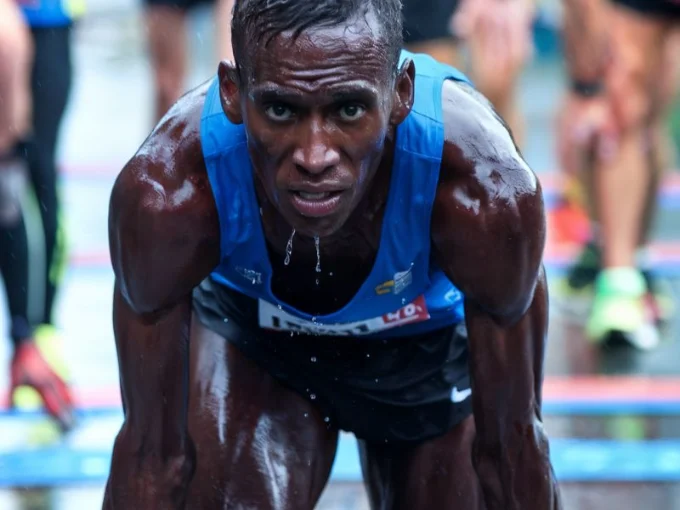
Endurance athletes, such as marathon runners, cyclists, and swimmers, rely heavily on carbohydrates for sustained energy during prolonged exercise. Their bodies need a readily available supply of glycogen, the stored form of glucose, to power through those long miles.
For endurance athletes, it’s recommended to consume a higher percentage of calories from carbohydrates, typically around 60-70%. This ensures that their glycogen stores are adequately stocked and can sustain them throughout their training and competitions. Carbohydrate loading, a strategy that involves increasing carbohydrate intake in the days leading up to an endurance event, is also commonly practiced by these athletes to maximize glycogen stores.
Strength Athletes: Protein Power for Muscle Building
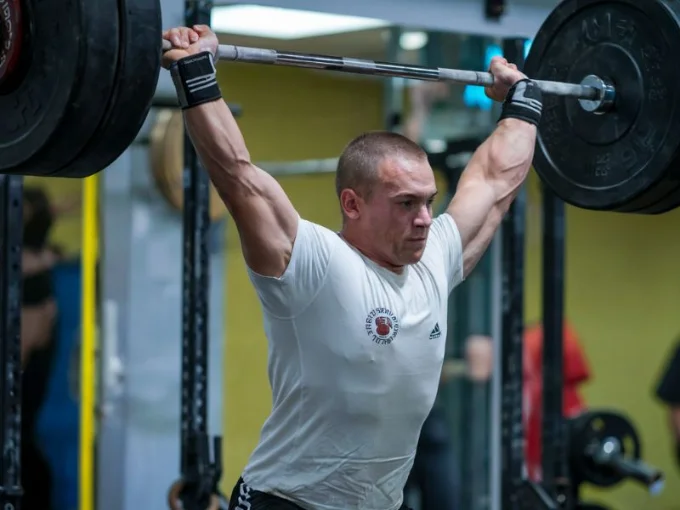
For strength athletes like weightlifters and bodybuilders, protein is king. This macronutrient is essential for building and repairing muscle tissue, which is crucial for increasing strength, power, and muscle mass.
Strength athletes typically require a higher protein intake compared to endurance athletes, typically around 1.2-1.7 grams of protein per kilogram of body weight per day. This ensures that their bodies have enough amino acids to support muscle protein synthesis and recovery after intense training sessions.
Team Sport Athletes: The Balancing Act

Team sport athletes, like soccer players, basketball players, and hockey players, need a balanced macronutrient ratio to support both endurance and power demands. They engage in a combination of short bursts of high-intensity activity (sprinting, jumping) and longer periods of moderate-intensity exercise (running, skating).
A balanced macronutrient ratio for team sport athletes might look like 50-60% carbohydrates, 20-30% protein, and 20-30% fats. This ensures adequate fuel for both endurance and power activities, while also supporting muscle recovery and overall health.
Finding Your Sweet Spot: Personalize for Optimal Performance
Remember, these are just general guidelines. The ideal macronutrient ratio for you will depend on your specific sport, training intensity, goals, and individual preferences. Consider factors like your body composition, metabolic rate, and any dietary restrictions or preferences when determining your optimal ratio.
Don’t hesitate to seek guidance from a registered dietitian or sports nutritionist to create a personalized nutrition plan that fuels your athletic performance and supports your overall health and well-being.
Fueling Your Workouts: Pre-, During, and Post-Workout Nutrition for Athletes
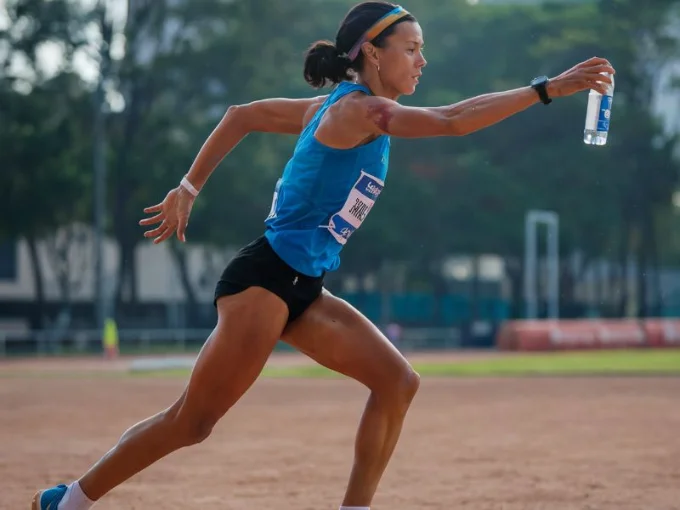
You wouldn’t expect a car to run on an empty tank, right? Well, the same goes for your body. To perform at your peak and recover effectively, you need to fuel your workouts strategically with the right macronutrients at the right times. Let’s dive into the science of pre-, during, and post-workout nutrition for athletes.
Pre-Workout Nutrition: Setting the Stage for Success
Your pre-workout meal or snack is like priming the engine before a race. It provides your body with the readily available energy it needs to power through your workout and perform at your best.

Focus on easily digestible carbohydrates, like those found in fruits, whole-grain toast, or oatmeal. These carbs break down quickly into glucose, providing immediate energy for your muscles. Pair them with a moderate amount of protein, such as Greek yogurt or a handful of nuts, to support muscle repair and prevent breakdown during exercise.
Avoid high-fat and high-fiber foods before your workout, as they can slow down digestion and cause discomfort during exercise. Aim to eat your pre-workout meal or snack about 1-3 hours before you hit the gym or field, allowing enough time for digestion.
During-Workout Nutrition: Keeping the Engine Running
For shorter workouts (less than an hour), water is typically sufficient to stay hydrated. However, for longer or more intense sessions, you may need to replenish electrolytes and provide your body with additional fuel.
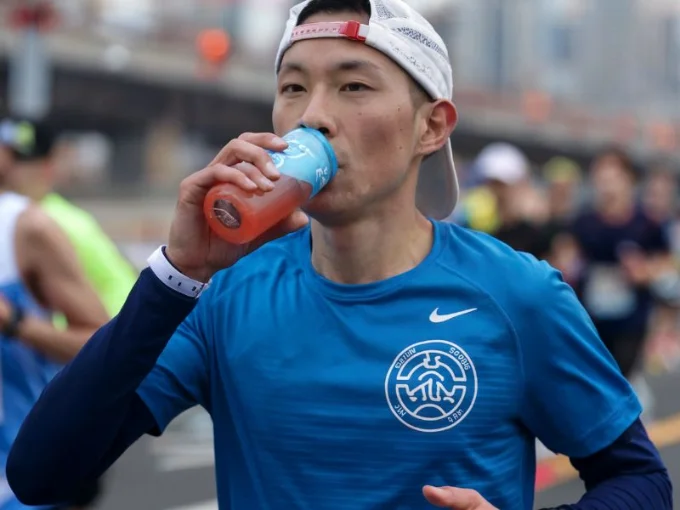
Sports drinks or gels can be a convenient way to replenish electrolytes like sodium, potassium, and magnesium, which are lost through sweat. They also provide a quick source of carbohydrates to maintain energy levels during prolonged exercise.
If you prefer a more natural approach, consider alternatives like coconut water or diluted fruit juice. Listen to your body and adjust your intake based on the intensity and duration of your workout.
Post-Workout Nutrition: Refueling and Rebuilding
The period after your workout is crucial for recovery and muscle growth. It’s like giving your car a tune-up after a long drive. Your post-workout meal or snack should prioritize both carbohydrates and protein to replenish glycogen stores (your muscles’ energy reserves) and support muscle repair and protein synthesis.

Aim to consume your post-workout meal or snack within 30-60 minutes after exercise, when your muscles are most receptive to nutrients. Good options include a protein shake with fruit, Greek yogurt with granola, or a grilled chicken salad with whole-grain bread.
By fueling your workouts strategically, you’ll optimize your performance, enhance your recovery, and ultimately achieve your fitness goals faster. Remember, food is your body’s fuel – make sure you’re giving it the premium octane it needs to thrive.
Additional Considerations for Athletes: Fine-Tuning Your Nutritional Game Plan
You’ve mastered the macronutrient basics, and you’re fueling your workouts like a champ. But for athletes looking to push their limits and achieve peak performance, there’s more to consider than just carbs, protein, and fats. Let’s delve into some additional factors that can make all the difference in your athletic journey.
Hydration: Quench Your Thirst for Success

Water is the unsung hero of athletic performance. It’s essential for regulating body temperature, transporting nutrients, and lubricating joints. Dehydration can lead to decreased performance, fatigue, muscle cramps, and even heatstroke.
Make sure you’re drinking plenty of fluids throughout the day, not just during exercise. Aim for at least 8 glasses of water per day and increase your intake during hot weather or intense training sessions. Consider electrolyte drinks or coconut water to replenish electrolytes lost through sweat.
Micronutrients: The Unsung Heroes of Athletic Performance
While macronutrients provide the bulk of your energy needs, micronutrients like vitamins and minerals play a crucial supporting role in your athletic performance. These essential nutrients are involved in various bodily functions, including:
- Energy production: B vitamins are essential for converting carbohydrates, fats, and protein into energy.
- Muscle function: Calcium, magnesium, and potassium are vital for muscle contraction and relaxation.
- Oxygen transport: Iron is essential for carrying oxygen to your muscles, ensuring they have the fuel they need to perform at their best.
- Immune function: Vitamins C and D, zinc, and other micronutrients support a healthy immune system, crucial for athletes who push their bodies to the limit.

While a balanced diet should provide most of the micronutrients you need, athletes may benefit from additional supplementation, especially if they have specific deficiencies or increased needs due to intense training. Consult with a registered dietitian or sports nutritionist to assess your micronutrient status and determine if supplementation is necessary.
Supplements: Enhancement or Hype?
The world of sports supplements can be overwhelming, with countless products promising to boost performance, speed up recovery, or build muscle faster. However, it’s important to remember that supplements are just that – supplements. They should complement a healthy diet, not replace it.
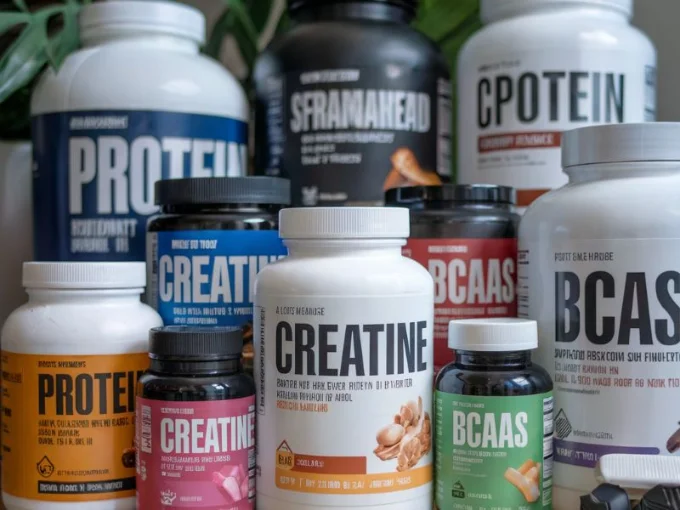
Some supplements that may benefit athletes include:
- Protein powder: Can help meet increased protein needs for muscle building and repair.
- Creatine: May enhance performance in high-intensity, short-duration activities like weightlifting and sprinting.
- Branched-chain amino acids (BCAAs): May help reduce muscle breakdown and fatigue during exercise.
However, it’s crucial to choose supplements wisely and consult with a healthcare professional before starting any new supplement regimen. Not all supplements are created equal, and some may even be harmful or banned in certain sports.
Individualization: Your Unique Nutritional Needs
Remember, every athlete is different. Your ideal macronutrient ratio and supplement needs will depend on your specific sport, training intensity, goals, body composition, and any dietary restrictions or preferences.
Don’t fall for one-size-fits-all approaches. Work with a registered dietitian or sports nutritionist to create a personalized nutrition plan that fuels your performance, supports your recovery, and helps you achieve your athletic dreams.
By considering these additional factors and fine-tuning your nutritional game plan, you’ll be well on your way to unlocking your full athletic potential and achieving peak performance.
Conclusion: Fuel Your Athletic Journey with the Power of Macronutrients

Throughout this guide, we’ve explored the critical role that macronutrients play in fueling athletic performance and supporting recovery. We’ve discovered how carbohydrates provide the energy for intense workouts, protein builds and repairs muscle tissue, and fats offer sustained fuel for endurance activities.
We’ve also delved into the importance of tailoring macronutrient ratios to your specific sport and training goals, as well as strategies for optimizing your pre-, during, and post-workout nutrition. We’ve even explored additional considerations for athletes, including hydration, micronutrients, and the potential role of supplements.
Unleash Your Full Potential: Take Charge of Your Nutrition

Now that you understand the science behind sports nutrition, it’s time to take action and fuel your body for success. Remember, food is your fuel, and the right balance of macronutrients can make all the difference in your athletic performance, recovery, and overall well-being.
- Embrace Individualization: Work with a registered dietitian or sports nutritionist to create a personalized nutrition plan that meets your unique needs and goals.
- Prioritize Whole Foods: Focus on incorporating nutrient-dense, whole foods into your diet, providing your body with the vitamins, minerals, and antioxidants it needs to thrive.
- Experiment and Track: Don’t be afraid to experiment with different macronutrient ratios and track your progress to see what works best for you.
- Stay Hydrated: Make hydration a priority, especially during and after workouts.
- Listen to Your Body: Pay attention to your body’s signals and adjust your nutrition accordingly.
By taking charge of your nutrition and fueling your body with the right balance of macronutrients, you’ll be well on your way to unlocking your full athletic potential, achieving peak performance, and experiencing the joy of a healthy, active lifestyle.
Remember, food is not just sustenance; it’s the fuel that powers your dreams. So, eat wisely, train hard, and watch as you reach new heights in your athletic journey!

